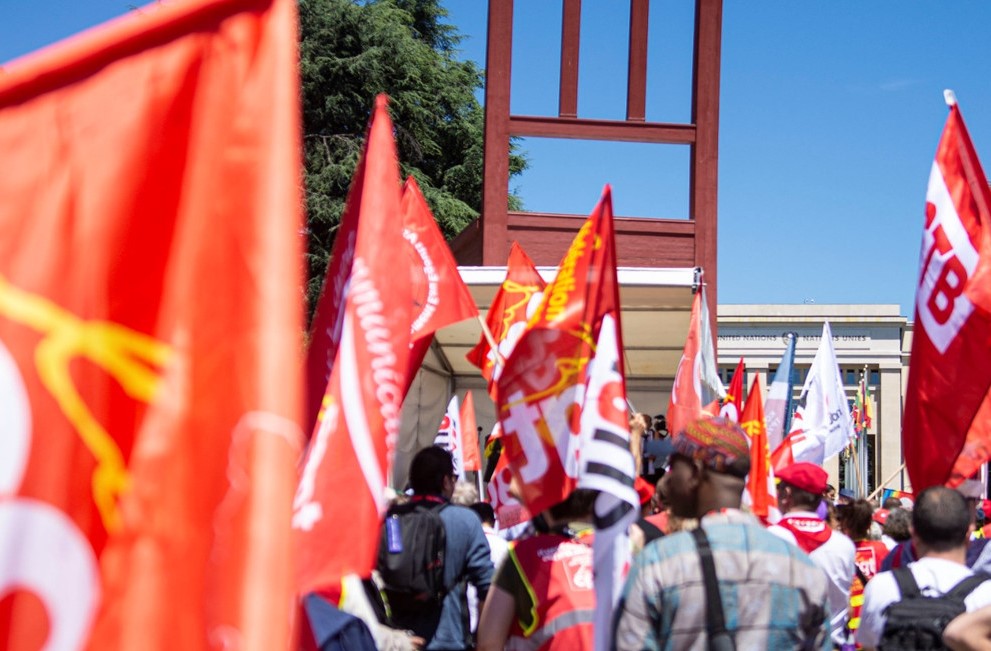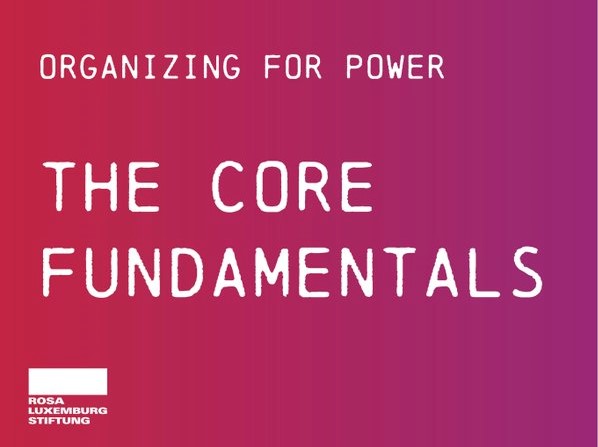Share Twitter Facebook Email Copy URL
On 26 September 2021, the popular initiative “Lower taxes on wages, tax capital fairly”, the so-called “99% initiative” of the Young Socialists (YS), was rejected by 64.9% of voters and all cantons. What lessons can progressive forces draw from this result? Decoding.
The content of the initiative
The 99% initiative advocated a modification of Article 127a of the Federal Constitution concerning the taxation of income from capital and work through two parts: the taxation of 150% of the share of income from capital – dividends, interest, profits from shares, capital gains and rental income – above an amount defined by the Law and the allocation of the additional revenue to support measures for modest incomes from work[1].
Based on an amount of CHF 100,000, the initiators estimated that the text would have affected 60,000 taxpayers with CHF 3 million of invested assets at an assumed return of 3.37%, i.e. 1% of the population. The initiative would have brought in between 10 and 15 billion francs per year, which could have been used to reduce health insurance premiums and to finance continuing education, childcare, healthcare and public transport[2].
The initiators’ reasons
Supported by the Swiss Socialist Party, the radical left, the Greens, the Evangelical Party and part of the churches, the initiative aimed to thematise the growing economic inequality in Switzerland. In this country, the proportion of net wealth held by the richest 1% of taxpayers rose from 33% in 1980 to 43% in 2017 and only 24.6% is now held by the 90% of taxpayers[3]. Moreover, 23% of households have no wealth at all, while the 0.32% of the “super-rich”, with more than 10 million francs, hold 32.38%[4]. The initiators considered this situation unacceptable, particularly in view of the stagnation of real salaries[5], but also of the rise in poverty which affects 735,000 people, 155,000 of whom are gainfully employed[6].
The initiators have pointed to the role played by capital income in this increased concentration of wealth. We are talking about around 70 billion francs each year (capital gains aside) held by the richest people (the 1% hold 60%!) who, by having the most profitable assets, take advantage of the soaring stock and property markets to accumulate more income than the rest of the population[7]. This concentration of wealth is encouraged bymany elements including the historical characteristics of the Swiss financial centre specialized in the offshore management of private assets which favors tax evasion[8], inter-cantonal tax competition and the lowering of taxes on profits, dividends, large fortunes and inheritances in recent years[9]. The loss of revenue for the State has been estimated at around 5 billion per year[10].
The initiative thus had a dual political orientation: to denounce these growing inequalities and to redirect tax policy in favour of the 99%. For the initiators, taxes should not only be used to finance the state’s regalian tasks, but also to support the people who live from their work and create the country’s wealth[11].
Opponents who accept inequalities
A coalition of right-wing and centre parties, the Federal Council and business associations opposed the initiative with various arguments[12]. According to these opponents, income in Switzerland is more evenly distributed and capital is already heavily taxed in comparison with other countries (sic!). In their view, the initiative would also have created injustices, as capital income would have been taxed more heavily than labour income, while the rich already pay a lot of tax (second sic!). Finally, opponents stressed the importance of capital for innovation, the creation of new businesses and jobs, and denounced the harmful effect of such taxation on small and medium-sized enterprises, particularly in the case of succession. The business community stated that the initiative was contrary to the “entrepreneurial spirit” and threatened Switzerland’s prosperity[13].
Opponents thus felt that inequalities were acceptable and should not be reduced.

Photo: Aris Martinelli
The tax issue on an international scale
The initiative was rejected by the majority of voters, but it received 35% of the vote and has been accepted in several large cities in German-speaking Switzerland (Basel, Bern and Zurich) and French-speaking Switzerland (Lausanne, La Chaux-de-Fonds, Fribourg, Vevey and Delémont). So there is a significant part of the Swiss population that has understood the importance of fighting inequality. The issues raised by the initiative also have an international scope. The world’s richest 1% actually increased their share of income between 1990 and 2015, while the poorest 40% earned less than a quarter of the income[14]. As early as the 1990s, the anti-globalisation movement tackled the rise in inequality by demanding, among other things, a tax on international currency transactions (Tobin Tax). In the aftermath of the 2008 economic crisis, the Occupy Wall Street, Black-Lives Matters and Fight for $15 movements brought the issue of economic and racial inequality in the United States to the fore. Taxation of the super-rich and high earners was central to Bernie Sanders’ platform in the last presidential election and to that of Congresswoman Alexandria Ocasio-Cortez. In Europe, this theme has been taken up by organisations such as Syriza in Greece, Podemos in Spain and Jeremy Corbyn’s Labour left in the UK.
While the COVID19 crisis and social movements have forced President Biden to initiate tax reform that includes higher taxes on corporations and the super-rich, the absence of such movements in Europe has prevented the implementation of these plans under the leadership of progressive forces. However, a growing number of governments and international organisations – the International Monetary Fund (IMF), the World Bank and the Organisation for Economic Co-operation and Development (OECD) – are advocating a fairer redistribution of income to quell social protest and promote economic growth, undermined by the COVID19 crisis. The UK Conservative government has, for example, announced an increase in corporation tax, while the G7 and the OECD have recently been active in introducing a global minimum tax on multinational companies.
Is tax justice possible and desirable today?
This “tax battle” is part of the crisis of neoliberal capitalism. Faced with an erosion of profits in the neo-liberal turn of the 1980s, employers and their governments lowered wages, dismantled social protection, reduced tax on capital, shifted investment to finance and increased credit and high wages to support consumption[15]. These measures have increased unemployment and weakened the unions. As a result, wages have risen less quickly than labour productivity, leading to increased inequality. In Switzerland, neoliberal measures were adopted from the 1990s onwards…[16].
However, the economic, health and ecological crises and social movements in many countries have led to a challenge to neoliberal capitalism and have undermined the idea that economic prosperity can be achieved by reducing tax on capital and putting pressure on labour. In this context, the tax battle is guided by two visions: one concerned with saving neoliberal capitalism and the 1% of the population who benefit from it; the other aiming to overcome it in favour of a tax policy for the 99%.
At a time when the confrontation between capital and labour is becoming increasingly fierce, demanding taxation for the 99% makes sense, but it cannot be a sufficient measure. The taxation of capital income operates at the level of the distribution of wealth and makes it possible to correct inequalities without touching the capitalist relations of production that permanently generate these inequalities[17]. Even with progressive tax policies, capital owners will have room to manoeuvre to circumvent the new tax norms or pass on the costs to employees. In Switzerland, as recently demonstrated by the Panama Papers affair, tax evasion is the order of the day and, this is compounded by the absence of mass social movements capable of forcing the authorities to adopt a tax system that favours labour income.
Conclusion
The 99% initiative had the merit of putting the issue of inequality at the centre of the political debate in Switzerland. The fact that 35% of the population voted in favour of this text, despite the Covid-19 crisis that hampered the voting campaign, is a positive signal. However, the vote also revealed the limits of such an approach. Without massive mobilisations it will be difficult to obtain tax justice measures in the coming years in Switzerland and in the rest of the world. The business community wants to preserve the competitiveness of the economy at all costs in an increasingly unstable international environment. Most of the measures announced by governments will therefore not change the situation.
In Switzerland, the key question is whether the debates and mobilisations around the 99% initiative will lead to policies in favour of the 99% or whether, on the contrary, the right wing will seize the opportunity to further reduce tax on capital. In our opinion, it is in the interest of progressive forces to build on the positive aspects of this vote to construct a programme to break with an economic system shaped by the 1%. This programme could be based on a solid analysis of the mechanisms at the source of inequalities, which means considering the centrality of capitalist relations of production. This theoretical effort would require another: the courage to break with the collegiality of Swiss politics in order to attack the causes of inequalities linked to the new modalities of labour exploitation. This implies refusing any kind of cheap compromise that consists in reassuring the owners of capital of the goodness of the proposed measures and assuming to the end the confrontation between capital and labour not only on the television screens, but also in the workplaces and living spaces of the 99%.
Aris Martinelli is a Scientific Assistant at the Haute école de gestion HEG Arc, Neuchâtel.
- [1] Federal Chancellery, “Federal popular initiative ‘Lower taxes on wages, tax capital fairly “, 24.09.2021.
- [2] Socialist Youth, “Argument for the 99% initiative“, consulted on 29.09.2021.
- [3] Daniel Lampart & Kristina Schüpbach, ”Verteilungsbericht 2020 Die Verteilung der Löhne, Einkommen und Vermögen sowie die Belastung durch Steuern und Abgaben in der Schweiz”, File No. 140, July 2020, Swiss Union of Trade Unions (USS).
- [4] Federal Tax Administration, “Statistics on the wealth of natural persons for the whole of Switzerland 2017“, 2020, Bern.
- [5] Daniel Lampart & Kristina Schüpbach, “ Verteilungsbericht 2020 Die Verteilung der Löhne, Einkommen und Vermögen sowie die Belastung durch Steuern und Abgaben in der Schweiz “, File No. 140, July 2020, Swiss Union of Trade Unions (USS).
- [6] CARITAS, “Facts and figures: poverty in Switzerland“, accessed on 29.09.2021.
- [7] Marc Brunner, Jonas Meier and Naef Armando, “Heterogeneity in Returns to Wealth – Evidence from Swiss Administrative Data“, SSRN Electronic Journal, 2021.
- [8] Sébastien Guex (interview), “ La fiancé helvétique est profondément parasitaire !, Services Publics, 01.10.2021, pp. 7-8
- [9] Margret Kiener Nellen & Erwin Roos, “Die Schweiz: Steuerparadies für Konzerne und Reiche – zulasten der Armen “, In: JUSO & Denknetz (eds.) Geld arbeitet nicht – wir schon!, Edition 8, Zurich, pp. 62-93.
- [10] Young Socialist, “Argument for the initiative 99%“, 2021, pp. 9.
- [11] Christian Gross, “Die 99%-Initiative als Wendepunkt in der Steuerpolitik”, In: JUSO & Denknetz (eds.) Geld arbeitet nicht – wir schon!, Edition 8, Zurich, pp. 9-11.
- [12] Alliance against new taxes – NO to the tax initiative of the Young Socialists, “Information sheet: the essentials on the initiative “, accessed on 29.09.2021.
- [13] Christian Frey, ” Initiative 99%: frontal attack on entrepreneurship “, Economiesuisse, 14.09.2021.
- [14] United Nations, “https://www.un.org/development/desa/dspd/wp-content/uploads/sites/22/2020/02/World-Social-Report2020-FullReport.pdf“, Geneva, January 2020.
- [15] Husson Michel, “Neoliberalism, supreme stage? “, Actuel Marx, 2012/1 (no. 51), p. 86-101.
- [16] Yvette Jaggi (ed.), The Black Book of Neoliberalism, 1996, Edition de l’Aire, Vevey.
- [17] In this regard, see the review of Thomay Pikkety’s seminal work on inequality (Capital in the 21st century, 2013, Seuil, Paris) by Alain Bihr and Michel Husson: Thomas Piketty: an illusory critique of capital, 2020, Page2 & Syllepse, Paris.



